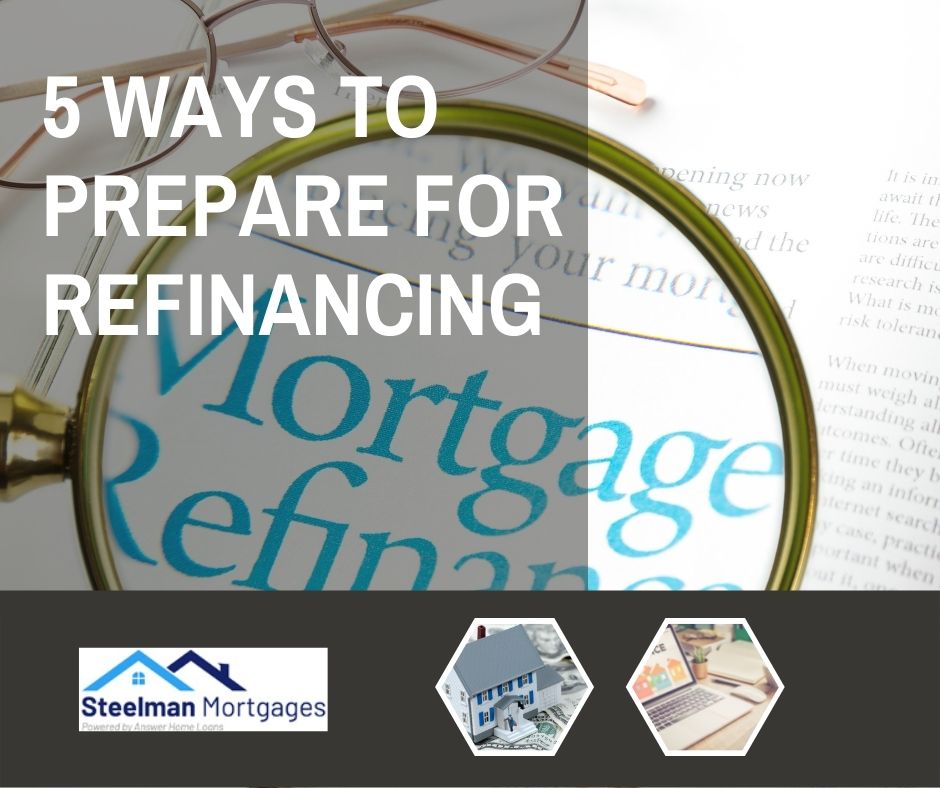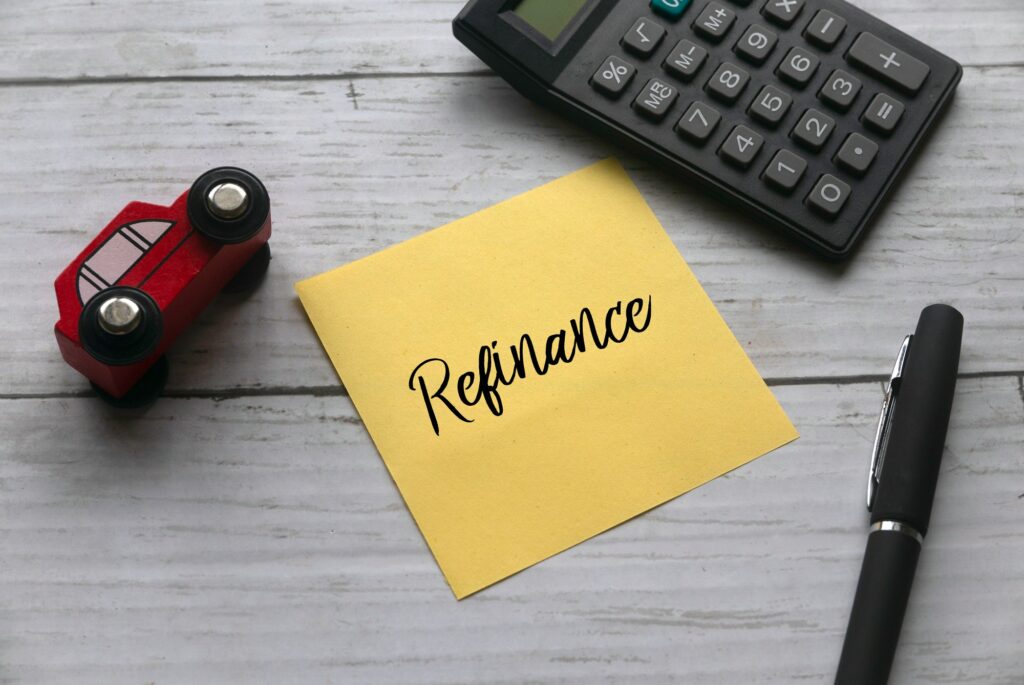Many homeowners are considering refinancing, as the housing market has grown so drastically in recent years. If you are wondering whether now is the time to refinance or want to know more about how to prepare for refinancing, we have 5 tips to help.
Why Refinance?
First of all, you should determine if refinancing is likely to be a good choice for your individual scenario. It is worth talking to a loan officer about refinancing if any of these are true of you:
- Interest rates are lower now than they were when you bought your home.
- Your credit score, debt-to-income ratio, or income have increased since buying your home.
- You have an ARM and it’s time to transition to a fixed rate mortgage.
- You have debt to consolidate.
- Your income has recently decreased and you want to lower your monthly payment.
- You are currently paying PMI, but you could now qualify for a mortgage without it.
- You plan to move soon, and an ARM will allow you to lock in a lower introductory rate until then.
If you are realizing refinancing might be the right next financial move for you, here are 5 ways to prepare.
1. Determine Your Goal
The first step to take as your prepare for refinancing to deciding what the goal of refinancing is for you. There are many potential benefits to refinancing, including saving money on interest in the long term, lowering your monthly payment, or cashing in on some of your equity.
Consider your financial goals, so that you can begin with the end in mind. If you are a strong financial candidate, you may end up with many options and it will help to already have your end goal set as you choose between them. Some possible goals might be:
- Taking out enough cash to finance a home renovation
- Lowering the monthly payment to accommodate a career change
- Eliminating PMI to put more of your money toward the loan itself

2. Do The Math
The next step to prepare for refinancing is doing the math. Figure out your ideal scenario by calculating what terms and interest rate will get you to your ultimate goal.
Make sure to let your loan officer know what your target numbers are so they can help you meet your goals. Remember that a loan officer is here to help!
3. Get Your Finances Ready
You already know from your previous experience qualifying for a mortgage what an underwrite wants to see to be able to confidently offer the most favorable terms. Wherever possible, prepare your finances to put your best foot forward as a borrower. This includes:
- Raising or maintaining your credit score to keep it in the “very good” or “excellent” range
- Pay off tax liens
- Avoid taking on new debt or opening new lines of credit
4. Collect Relevant Paperwork
To prepare for refinancing in the most efficient way, gather any paperwork you know you will need. The more quickly you can provide the necessary documentation, the faster the refinance process will go. Remember this is different from a typical escrow period, because you do not have to coordinate with another party (i.e. the sellers).
The timeline is determined by how quickly you get the information ready for underwriters to approve, so be prepared when you talk with your loan officer by collecting relevant paperwork, like:
- 2 years of tax returns (including business tax returns if you own 25% or more of a business)
- 2 years of W-2s or 1099s
- 2 months of bank statements
- Proof of alimony or child support payments
5. Prepare for a Home Appraisal
An appraisal will be conducted to determine the amount of equity you have in your home. Prepare for refinancing by getting your home ready for appraisal. Collect receipts for any renovations or remodeling that has taken place since you bought the home, and focus on the parts of the home appraisers pay attention to, including:
- Updated safety features (i.e. carbon monoxide and smoke detectors)
- Repairs to damaged walls, floors, etc.
- Cosmetic changes
- General care, supporting the appearance of a well-maintained home
To learn more about how to prepare for refinancing or to find out what you might qualify for, contact us anytime. We have loan officers ready to help you meet your financial goals.
More Advice for Homeowners Refinancing:
Why You Should Consider a Home Refinance
5 Great Reasons to Refinance Your Home
Bank Statement Home Loan Programs Work Well for Self-Employed

